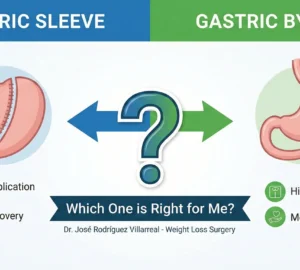Did you know there are thousands of types of vitamins but only 13 essential categories? Vitamins may come across merely as a mix of letters and numbers for those who are not experts. For a common man who is not a doctor or a dietician, it becomes daunting to decipher the importance of vitamins for life. However, for patients of bariatric surgery understanding vitamins is absolutely essential.
It is well established that all types of bariatric procedures require vitamin supplementation for the rest of the life of the patient. Several surveys and trials conducted have documented the fact that micronutrient deficiencies are evident after any type of bariatric procedures.
While these restrictive procedures do not inhibit nutrient absorption, they still carry the risk of deficiency – as the amount of food gets limited, the vitamins and minerals also get limited often resulting with intolerance of nutrient rich foods.
This article will explain what vitamins are, why they are important, and how to best supplement them after having bariatric surgery.
What Are Vitamins?
Vitamins are chemicals that are needed by the body for good health, providing body maintenance and fighting illness. The body does not produce these compounds naturally and largely depends upon external sources (food) to find them.
Put simply, vitamins are
(i) organic compounds
(ii) not produced by human body
(iii) essential for life sustainability and
(iv) consumed in small quantities through food or supplementation.
Why Are Vitamins Important?
Vitamins are vital for the sustainability of life. Vitamins help the body build up its immune system; help cells in growth and development, and helps organs do their jobs. For example, Vitamin K helps in clotting of blood when there are cuts /scrapes in the body, Vitamin A helps in well being of the eyes and Vitamin D helps in synthesis of mineral called calcium which helps us have strong bones.
Vitamins are fundamental for life and living beings. They are essential for growth and development of multicellular organisms. Vitamins regulate appetite and hunger, brain activity, nutrient absorption, metabolic rate, fat and sugar metabolism, hormone function, energy storage, and more.
Bariatric procedures both alters the way food is processed and often causes the stomach to reject nutrient rich food. Fortunately, there are still ways overcome these deficiencies.
Why are they important especially after bariatric procedure like gastric bypass or DS?
Bariatric procedures can be classified as either (1) Core Restrictive (such as the band or sleeve which restricts the intake of food) or (2) Core Malabsorptive (such as the Gastric bypass which changes digestion and absorption). The surgeries are divided as follows..
Wiih Core Restrictive procedures the intake of food is reduced drastically placing the body at a greater risk of developing a vitamin deficiency through a lack of food. Furthermore, with Core Malabsorptive proceures there is intentional reduction of nutrient absorption by the body.
Studies show that patients who have developed metabolic deficiencies after Roux-en-Y gastric bypass responded well to postoperative supplements and the risk of developing micronutrient deficiencies decreased over time. Studies further show that adherence to a strict vitamin and dietary regime as suggested by most surgeons, protects patients from developing severe metabolic deficiencies after RYGB and BP.
It is always wise to prevent a nutritional deficiency through proper supplementation than to treat it afterwards.
What Can I Do After Weight Loss Surgery?
Lifelong vitamins and minerals are VITAL to prevent deficiencies since your food consumption and/pr absoption is dramatically reduced. Certain vitamins are more important for those adjusting to life after weight loss surgery.
While patients should also seek out specific vitamin supplements specifically for patients, such as Bariatric Advantage, below are some general guidelines and information. *There are general guidelines – Please check with your Primary Care Physician to see if your particular situation requires different or extra vitamins and supplements.
Vital Vitamins
- Adult Strength Multi-Vitamin
- Calcium Citrate w/ Vitamin D or Bone Health Blend (1500-1800 mg a day)
- B-12 (1000 mcg a day. Look for Methylcobalamin first, a better active version of B-12)
- Iron (males up 18mg a day, demales 29mg)
Supplement Guidelines
- Do not take Calcium/Magnesium and Iron at the same time
- Do not take fiber products with your vitamins
- Do not take vitamins/supplements on an empy stomache
- Use chewable, liquid, gummies or powders,
Probiotics
- Start right after surgery.
- Balances trillions of bacteria in our gut.
- Promotes healthy immune system.
- Helps with digestion and nutrient absoption
- Promotes bowel functionality
Omega 3 Fatty Acids
- Fish Oils, Flaxseeds, Hemp Hearts, & Chia Seeds
- Balances hormones, Protects Brain, Enhances Skin and Eyes
- Promotes bowel functionality
Additional Supplements
- Vitamin D3
- Vitamin B1 (Thiamin)
- Magnesium (Healthy bones, teeth, & skin. Promotes sleep. Take in evening with Calcium)
Conclusion
Although vitamins are important for everyone, they are especially Vitamins are critical for patients undergoing or undergone a bariatric procedure. Patients after a bariatric procedure should pay special attention to nutrients they put in their bodies. They should also take specifically formulated supplements, such as Bariatric Advantage, for post-bariatric conditioning of their bodies. Nutritional education in bariatric surgery is important for every patient in order to achieve healthful long-term weight loss.
http://www.medicalnewstoday.com/articles/195878.php
http://www.dining.iastate.edu/nutrition/docs/vitamins.pdf
http://kidshealth.org/teen/food_fitness/nutrition/vitamins_minerals.html#
http://www.goodnet.org/articles/11-essential-vitamins-minerals-your-body-needs
http://www.bariatric-surgery-source.com/bariatric-vitamins.html
http://www.ncbi.nlm.nih.gov/pmc/articles/PMC2784422/
https://www.nlm.nih.gov/medlineplus/ency/article/002399.htm










